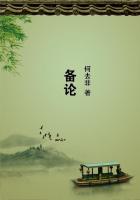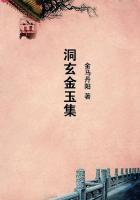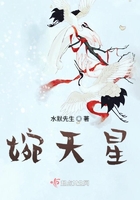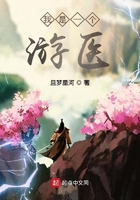Newton was of opinion that matter was made up, in the last resort, of exceedingly small solid particles, having no pores, or empty spaces within them. Priestley, in his Disquisitions relating to Matter and Spirit, carries the theory one step farther; and, as Newton surrounds his exceedingly small particles with spheres of attraction and repulsion, precluding in all cases their actual contact, Priestley is disposed to regard the centre of these spheres as mathematical points only. If there is no actual contact, then by the very terms no two particles of matter were ever so near to each other, but that they might be brought nearer, if a sufficient force could be applied for that purpose.
You had only another sphere of repulsion to conquer; and, as there never is actual contact, the whole world is made up of one sphere of repulsion after another, without the possibility of ever arriving at an end.
"The principles of the Newtonian philosophy," says our author, "were no sooner known, than it was seen how few in comparison, of the phenomena of nature, were owing to solid matter, and how much to powers, which were only supposed to accompany and surround the solid parts of matter. It has been asserted, and the assertion has never been disproved, that for any thing we know to the contrary, all the solid matter in the solar system might be contained within a nutshell[45]."
[45] Priestley, Disquisitions, Section II. I know not by whom this illustration was first employed. Among other authors, I find, in Fielding (Joseph Andrews, Book II, Chap. II), a sect of philosophers spoken of, who "can reduce all the matter of the world into a nutshell."
It is then with senses, from the impressions upon which we are impelled to draw such false conclusions, and that present us with images altogether unlike any thing that exists out of ourselves, that we come to observe the phenomena of what we call the universe. The first observation that it is here incumbent on us to make, and which we ought to keep ever at hand, to be applied as occasion may offer, is the well known aphorism of Socrates, that "we know only this, that we know nothing." We have no compass to guide us through the pathless waters of science; we have no revelation, at least on the subject of astronomy, and of the unnumbered inhabitable worlds that float in the ocean of ether; and we are bound therefore to sail, as the mariners of ancient times sailed, always within sight of land. One of the earliest maxims of ordinary prudence, is that we ought ever to correct the reports of one sense by the assistance of another sense. The things we here speak of are not matters of faith; and in them therefore it is but reason, that we should imitate the conduct of Didymus the apostle, who said, "Except I put my fingers into the prints of the nails, and thrust my hand into his side, I will not believe." My eyes report to me an object, as having a certain magnitude, texture, and roughness or smoothness; but I require that my hands should confirm to me the evidence of my eyes. I see something that appears to be an island at an uncertain distance from the shore; but, if I am actuated by a laudable curiosity, and wish to possess a real knowledge, I take a boat, and proceed to ascertain by nearer inspection, whether that which I imagined to be an island is an island or no.
There are indeed many objects with which we are conversant, that are in so various ways similar to each other, that, after having carefully examined a few, we are satisfied upon slighter investigation to admit the dimensions and character of others.
Thus, having measured with a quadrant the height of a tower, and found on the narrowest search and comparison that the report of my instrument was right, I yield credit to this process in another instance, without being at the trouble to verify its results in any more elaborate method.
The reason why we admit the inference flowing from our examination in the second instance, and so onward, with less scrupulosity and scepticism than in the first, is that there is a strict resemblance and analogy in the two cases. Experience is the basis of our conclusions and our conduct. I strike against a given object, a nail for example, with a certain degree of force, because I have remarked in myself and others the effect of such a stroke. I take food and masticate it, because I have found that this process contributes to the sound condition of my body and mind. I scatter certain seeds in my field, and discharge the other functions of an agriculturist, because I have observed that in due time the result of this industry is a crop. All the propriety of these proceedings depends upon the exact analogy between the old case and the new one. The state of the affair is still the same, when my business is merely that of an observer and a traveller. I know water from earth, land from sea, and mountains from vallies, because I have had experience of these objects, and confidently infer that, when certain appearances present themselves to my organs of sight, I shall find the same results to all my other senses, as I found when such appearances occurred to me before.
But the interval that divides the objects which occur upon and under the earth, and are accessible in all ways to our examination, on the one hand, and the lights which are suspended over our heads in the heavens on the other, is of the broadest and most memorable nature. Human beings, in the infancy of the world, were contented reverently to behold these in their calmness and beauty, perhaps to worship them, and to remark the effects that they produced, or seemed to produce, upon man and the subjects of his industry. But they did not aspire to measure their dimensions, to enquire into their internal frame, or to explain the uses, far removed from our sphere of existence, which they might be intended to serve.

